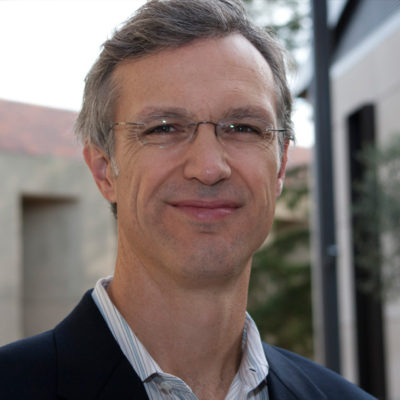Supreme Advocate
Summary
The work of Professor Jeffrey Fisher and Stanford Law School’s Supreme Court Litigation Clinic is profiled in this California Lawyer magazine article.
On April 29, 2014, three law students were ushered out of the Lawyers’ Room at the U.S. Supreme Court and into the chamber, hustling past the line of tourists, SCOTUS groupies, and other interested parties hoping to get in. They anxiously took their seats, waiting to hear oral arguments in Riley v. California, a case with major repercussions regarding the Fourth Amendment right to privacy, particularly as it applies to cell phones.
Arguments began with the petitioner’s lawyer, a tall, lanky man with graying hair and glasses. When he started speaking, the trio nudged each other excitedly. “There’s Jeff,” one of them said.
“The case involves applying the core protection of the Fourth Amendment to a new factual circumstance,” stated Jeffrey L. Fisher, co-director of Stanford Law School’s Supreme Court Litigation Clinic and lead counsel for David Leon Riley. “It has always been the case that an occasion of an arrest did not give the police officers authority to search through the private papers … of somebody’s house, and that protection should not evaporate more than 200 years after the founding because we have the technological development of smartphones.
…
In the overwhelming majority of criminal cases like this one, that’s where Riley’s legal story would have ended. But in 2013 the Stanford clinic unexpectedly found itself short one case to work on (the usual caseload is twelve per year). Fisher presented the students with two choices. When the students heard that Riley was about protecting cell phone privacy-a critical issue to them-Fisher says, “They ordered me, ‘You are taking that case!'”
Read More
